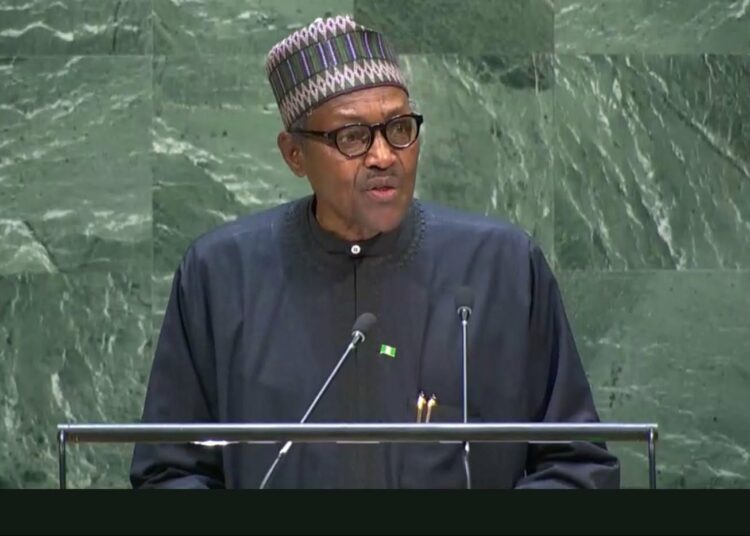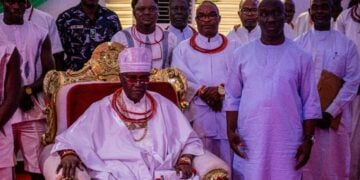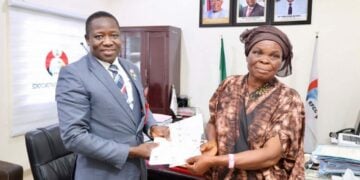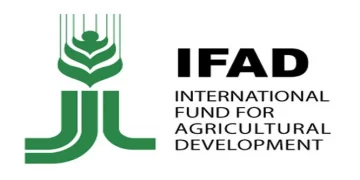President Muhammadu Buhari yesterday in New York made moves to woo investors to Nigeria, saying the nation, being the largest in Africa with over $400 billion in GDP and over 200 million people, is indeed an investors haven.
Contentedly, he said Nigeria’s economic growth has been mostly driven by the non-oil sector, even as he stated confidently that the nation is overcoming insecurity threats with huge prospects for stability which foreign direct investments can count upon.
“The advantages and disadvantages of investing in Nigeria far outweigh the challenges,” Buhari declared while speaking at Nigeria International Economic Partnership Forum on the sidelines of the United Nations General Assembly.
The Nigerian leader who was represented by his chief of staff, Prof Ibrahim Gambari, said the development gives credence to the revenue source diversification agenda of his administration.
Noting that the country’s economy and population are the largest in Africa with over $400 billion in GDP and over 200 million people, he said, “The International Monetary Fund (IMF) projects global growth to slow from an estimated 6.1 percent in 2021 to 3.6 percent in 2022 and 2023. For our economy, we recorded a quarterly GDP growth in Q1 2022. The growth has been mostly driven by the non-oil sector, giving credence to the revenue source diversification agenda of the government.
“The agricultural sector, our most important, has remained resilient in spite of security concerns, low irrigation, limited inputs, and legacy infrastructure challenges, with strong food demand bolstering growth. Growth in manufacturing reflected stronger household and business consumption on account of the reopening of economic activities and improvement in supply chains.”
Buhari assured that the present growth in the service sector was promising, adding that privatisation, foreign investment, globalisation and competition would stimulate economic growth.
He admitted revenue underperformance and promised to intensify action to address the challenge.
President Buhari said the Nigerian economy was ripe for increased investment.
“But on the contrary, private capital flows into Nigeria, consisting mainly of Foreign Direct Investment, have slowed, hindering the financing of much-needed infrastructure and natural resource access projects. My Administration is already working on innovative ways to restore these flows,” he stated.
He said a key strategy being adopted was the Integrated National Financing Strategy to identify ways to expand the financing envelope of the Sustainable Development Goals in Nigeria, and integrate and align public and private financial policies.
The president hinted that Nigeria’s National Development Plan (2021 – 2025) would generate 21 million full-time jobs and lift 35 million people out of poverty by 2025 and set the stage for achieving the government’s commitment of lifting 100 million Nigerians out of poverty in 10 years.
He continued: “To attain the objectives of the National Development Plan (2021 – 2025), we estimate that we would require an investment commitment of about N348 trillion. Government capital expenditure during the period will be N49.7 trillion (14.3 percent) while the balance of N298.3 trillion (85.7 percent) is expected from the Private Sector.
“Of the 14.3 percent government contribution, FGN capital expenditure will be N29.6 trillion (8.5 percent) while the Sub-National Governments’ capital expenditure is estimated to be about N20.1 trillion (5.8 percent).
“The successful implementation of this Plan will, therefore, be heavily dependent on strong partnerships between the private and public sector, both within and with Development Partners outside Nigeria”.
On the power sector, which he described as a major catalyst for Nigeria’s industrialisation, Buhari said the 614-kilometre Ajaokuta-Kaduna-Kano gas pipeline project would enhance our energy security.
“Our Administration also provided the sovereign guarantee for this vital infrastructure project. When completed this project will drive industrialization across the country,” he noted, adding that the first phase of the Presidential Power Initiative would provide over 40 million people with a more reliable electricity supply, creating 11,000 direct and indirect jobs for Nigerians.
“This will be from power system engineers to electricians and contractors, and this will in turn improve the standard of living while providing homes and businesses with constant, reliable, and affordable electricity supply.
“You may also wish to note that at the commencement of this Administration, N200 billion was paid for stranded power to service existing liabilities. Contract terms in Power Purchase Agreements were changed from “Take or Pay” to “Take and Pay.” Similarly, the Distribution Companies were made to use banks for bill collections – prior to this, Transmission Company of Nigeria was getting only 50% of proceeds. Now, TCN is financially viable and can invest in its own infrastructure,” the president said.
Stating that his administration has invested in improving security, Buhari said, “Indeed, the Nigeria military is making significant progress in the fight against insecurity and is building the momentum in reducing the challenge to its barest minimum.”
Regretting that the Ukraine–Russia war and the COVID-19 pandemic have continued to elevate fiscal risks globally, he observed: “Nigeria is not isolated from the impacts of the crisis. We have experienced high commodity prices, depressed external demand, and declining remittances all of which affect growth.
“Similarly, the level of insecurity on account of Boko Haram and other terrorist organisations such as ISWAP, as well as banditry and kidnapping groups across Nigeria have also impacted negatively on our efforts. Happily, we are overcoming such bends with huge prospects for stability which foreign direct investments can count upon. The advantages and disadvantages of investing in Nigeria far outweigh the challenges.
“According to PriceWaterhouseCoopers, Nigeria could be the fastest growing African economy by 2050, and could move up the global GDP ratings to 14th in the same year, provided we succeed in our efforts to diversify Nigeria’s economy away from oil and strengthen its institutions and infrastructure.”





